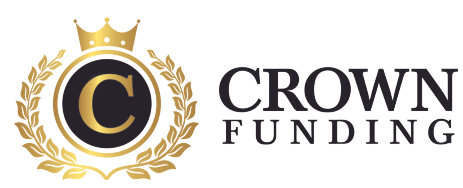
Why Debt Consolidation Bad for Your Credit?
Many Canadians are concerned about the impact of debt consolidation on their finances, but the truth is that it does not harm your credit in the long run if you take the proper measures and consolidate through the proper channels. It’s a calculated financial move that can save you hundreds, if not thousands, of dollars in interest over the life of your loan. Let’s look at how debt consolidation works and get to the bottom of the big question: does debt consolidation harm your credit?
What is the process of debt consolidation?
To comprehend the implications of debt consolidation on your credit, you must first comprehend how debt consolidation works. The debt consolidation approach seeks to accomplish two goals:
- To consolidate various lines of debt into a single location for simpler management
- To consolidate the interest rates, you pay on owing amounts into a single, low, manageable rate
You must first obtain a loan from the debt consolidation provider to accomplish this. You will then utilize the monies you borrowed to pay off other lines of debt, such as credit cards, school loans, and vehicle loans.
This transfers your loan from the different lines to your debt consolidation lender, with whom you should have negotiated a reasonable and manageable interest rate. Due to the significant asset worth that most homeowners may secure their loan against, home equity loans are the most typical option for debt reduction.
Do debt consolidation loans affect your credit?
Because of the nature of debt consolidation and loan repayments, there is a stigma attached to anything impacting an individual’s credit score. This prevents many people with poor credit from pursuing debt consolidation, even though they are among the categories most likely to benefit from it.
It should be stressed that consolidation loans do not harm your credit when offered by qualified lenders and appropriately handled. They are intended to assist you in making your debt more manageable and gradually improving your credit over time.
What effect does debt consolidation have on your credit?
Let’s be clear about this. Is debt consolidation bad for your credit? Only at first. One of the drawbacks of debt consolidation is that for it to work, you must obtain one more loan or credit line, which will be used to consolidate all of your debts.
The consequences of doing so can impact your credit, so let’s go over them to understand their significance.
Taking out a debt consolidation loan triggers a hard inquiry. A hard inquiry is the outcome of a credit check performed by your lender when you apply for a loan, implying that you are taking out a loan. Hard inquiries do lower your credit score slightly, but they are an unavoidable part of the debt consolidation process, and their effects last only about a year before returning to normal.
Credit account closures might lower your credit score.
Most people would think that closing a credit account is positive because you’ve completed your business with the lender and have no outstanding debts. However, the amount of open credit accounts you have affects your credit score significantly, and the older they are, the larger their influence. Your credit score will suffer if you choose to shut down any accounts after paying them off.
By keeping those credit lines open, you may easily prevent this. You will, however, have to resist the desire to use those credit lines again. If you don’t feel comfortable keeping these credit lines open, it’s best to close them—it may be better for you in the long run.
High credit consumption might result in a worse credit score.
If you frequently approach or exceed your credit limitations, you may have a high credit use ratio, which might harm your credit score. You’ll notice a decline when your consumption is 10% or greater. Because this utilization value considers your entire credit available across your accounts, it’s considerably more difficult to actively utilize more than 10% of your credit values than you may imagine.
Having stated that, even with high credit usage, paying off your owing amounts improves your credit score and restores it to normal. This makes it a natural part of the procedure and has no long-term consequences on your credit in the broad scheme of things.
When should you consider debt consolidation?
Anyone who asks, “Does debt consolidation affect credit?” should have a clear answer based on what we’ve discussed. If you understand and follow the process correctly, debt consolidation will not harm your credit.
However, remember that debt consolidation is not a solution for everyone. When you’re trying to keep up with high-interest rates and fees on multiple smaller, independent loans, it’s time to consolidate your debt. Debt consolidation is an excellent technique for getting back on track with debt management and repayment. It can also be an excellent option for Canadians with several difficult credit accounts to manage and pay on time.
However, debt consolidation will not help if you cannot meet your payment obligations. To successfully pay off loans, you will still need a steady source of income and smart money management.
If you’re looking for the greatest debt consolidation alternatives, go no further than Alpine Credits. For over 50 years, we’ve helped Canadians locate reasonable lending choices to consolidate their debt through home equity finance. Don’t wait any longer — contact us today to learn more about how our experts can assist you in finding a great rate on a debt consolidation plan that works for you.
Contact us right away to get started on a quote.
